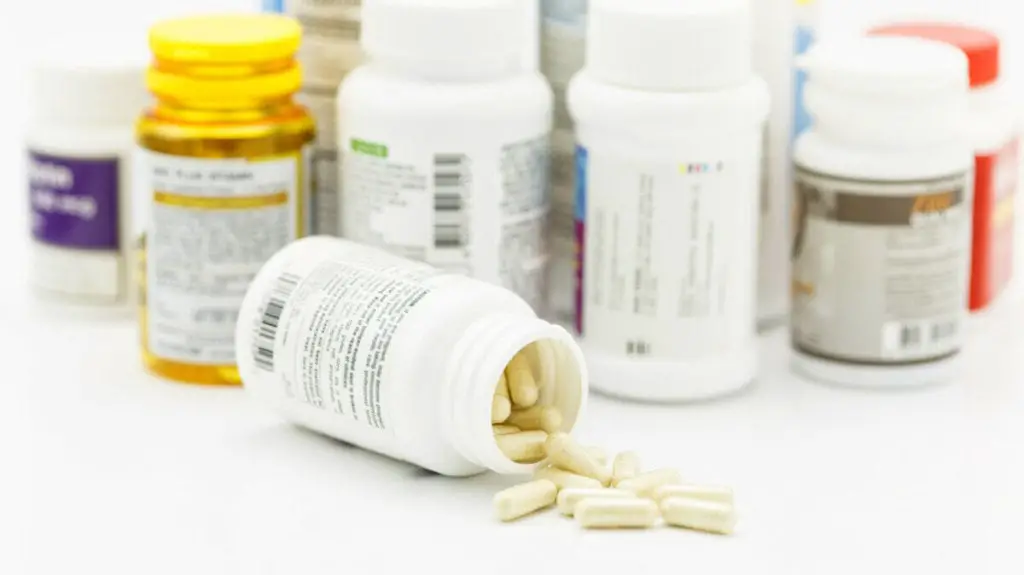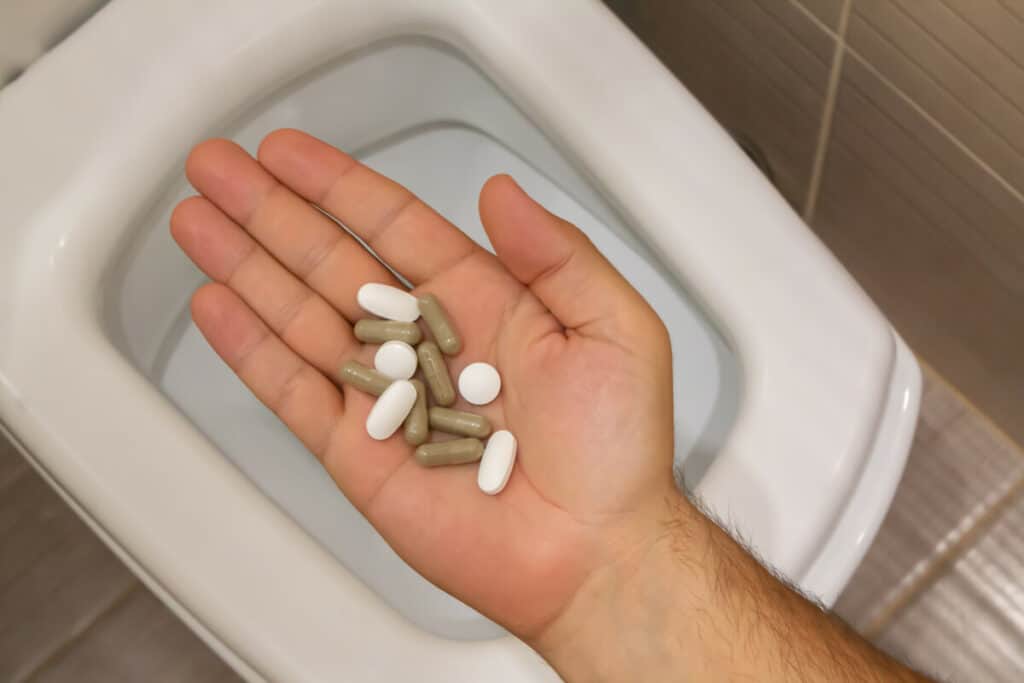
If your medicine cabinet is beginning to get cluttered with old, expired, or unused bottles of pills, it’s time to clean it out. There are a variety of ways to properly dispose of old medicine, based on the type of drug and what it contains.
To dispose of old medicine, locate a drop box at a police department or medical facility. These facilities will safely destroy expired prescription drugs and help prevent drug abuse. Some substances, like expired vitamins, can be disposed at home by following the FDA’s recommended flushlist.
Drug abuse is a widespread problem in the United States and many other countries. The best way to prevent expired drugs from falling into the wrong hands is to be knowledgeable and responsible about proper disposal.
Why Does Old Medicine Need to Be Destroyed?
Accidental or intentional misuse of drugs is one of the most common causes of health emergencies among youth in America. Children and teens are the most at-risk demographic for exposure to over-the-counter drugs, and most drug-related deaths or ailments are caused by substances found in the home. Each year, hundreds of children die due to substance abuse, and the U.S. Poison Control Center receives hundreds of thousands of calls regarding children under the age of 20, 80% of which are less than five years old. Needless to say, it is critical for parents and guardians to monitor, secure, and regulate the use of medicine in the home.
If it is not properly disposed of, old medicine can also end up in landfills, becoming dangerously available to people who will rummage through trash to find drugs. This is why the at-home disposal methods are based on making old medicine as undesirable as possible before throwing it away. By disposing of these substances correctly, you can help curb the overdose epidemic.
Lastly, medical substances can be harmful to the environment, especially when the residue of medicine or other personal care products ends up in the local water supply; even in trace amounts, the results can be harmful. Any pills that serve as painkillers, birth control, antidepressants, stimulants, opioids, or any other prescription should be disposed of safely in order to prevent contamination of local water supplies
When medicine expires or is no longer needed, the best way to ensure safety for yourself, your loved ones, and the environment is to dispose of it safely and promptly. The FDA and other health organizations have resources describing which medications can be safely disposed of at home, which should be brought to a local drop box, and how to find information regarding drug collection events near you.
Local Police Departments Accept Old Medicine
Almost all police departments have drop boxes for expired or unused medication, Typically, the drop box can be found in the department’s main lobby. From there, the drugs will either be thrown into an incinerator or ground up into a powder and buried in the nearest landfill. Police departments are committed to preventing drugs from falling into the wrong hands, so they take extra measures to ensure that any potentially harmful substances are completely destroyed.
Bringing your old medicine to a local drop box is simple, but there are a few things you should know beforehand:
- These medication deposit boxes are specifically designated for prescription drugs and other hazardous waste.
- Police departments do not accept needles. Needles must be brought to a separate designated facility.
- Vitamins and other over-the-counter drugs can be disposed of at home (see the procedures below). Do not bring these to a police department disposal facility, as they occupy unnecessary space and increase the overall cost of the destruction process.
Specifically, regarding unnecessary clutter in the drop boxes, one evidence specialist commented:
“That’s something I wish the public knew. There are a lot of medications that you can safely dispose of at home. Any medications given to the police department have to be processed and the disposal process requires taxpayer dollars. We get a lot of things like vitamins and non-prescription drugs that could be disposed at home.”
Local Police Department – Evidence Management
You Can Practice Safe Disposal at Home

There are several easy ways to dispose of old medicine at home; the main thing that matters is that you make the substances as undesirable as possible. This way, even if disposed of drugs fall into the wrong hands, it will be difficult for them to be ingested and misused.
Some pills and liquid medications can be flushed down the toilet. The FDA’s flush list will help you determine which of your medications can be flushed. Generally, these are substances that are sought-after for their abuse potential or can be harmful to children and teens if taken incorrectly.
For any substance not on the flush list, fill the bottle with an undesirable substance like kitty litter, coffee grounds, dirt, or even old paint. (You can also use a bag if you no longer have the original bottle or container). Fill the remaining space with water, screw the lid on, and secure it with tape. When disposing of any bottle or container that has personal information printed on the label, obscure the information by scribbling it out with a black marker. You can now throw these old medications away safely because by the time they reach a landfill it is highly unlikely that they can feasibly be ingested. Sealing bottles tightly will also help prevent substances from contaminating your local water supply.
If you have any other questions about safe drug disposal, contact a local pharmacist. Pharmacists are medical professionals and can help you safely and responsibly handle expired medication. This video also provides a helpful overview of how to safely dispose of unused or expired medicine:
Drug Collection Events
Events like DEA Takeback Day and The American Medicine Chest Challenge are held annually in locations throughout the country. These events are designed to inform and protect families from drug abuse by providing free drug collection and disposal. You can search online or contact a local police department to learn about the next drug collection event near you. Under the Secure and Responsible Drug Disposal Act of 2010, Congress is making efforts to employ organizations like these in order to help protect children, youth, and the environment from controlled substances. With the help of responsible citizens everywhere, we can combat the overdose epidemic and make the world a safer place.
Related Topics:
If you like the article above, here are some other similar articles you should check out!
